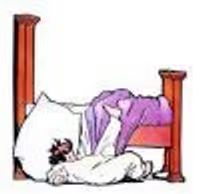Mel Gibson's Secret Apology Phone Calls...
#25re: Mel Gibson's Secret Apology Phone Calls...
Posted: 8/25/06 at 11:02pm
You obviously missed the point in the initial post in this thread: Gibson's apology was insincere:
One of the people on the receiving end of disgraced Gibson's apology tells the website the actor said he wanted him to know he was really sorry and was working on his "problem." Gibson also said he hoped he would be able to work with him again. The unnamed mogul says he was civil to the Braveheart star but remains unconvinced the actor was being completely sincere.
nomdeplume
Broadway Legend Joined: 6/20/05
#26re: Mel Gibson's Secret Apology Phone Calls...
Posted: 8/25/06 at 11:18pm
PalJoey, as I have already said, the judging of sincerity is subjective. The listener was not inside Mel Gibson's mind.
Judge a man by his deeds (objective). Look at what he does from here out toward gay folks, toward Jewish folks, toward people in general. It is a deed to make an apology. The words, however, need to be followed by actions. He has been a man of action, he has been a doer in the past, so let's see what he does.
Why aren't you writing him a letter to express to him why you feel what he has said is wrong, PalJoey? Why don't you directly engage him and see if he responds?
#27re: Mel Gibson's Secret Apology Phone Calls...
Posted: 8/25/06 at 11:41pm
Though I understand your intent Nom, I believe Gibson only became apologetic once it became clear that the details of his arrest, including what he said, became fodder for public discourse.
His first "apology" was nothing of the sort, and did not even admit his anti-Semitic statements. Only after, I believe, having a publicist work with him and realizing the need to do some serious damage control did he even acknowledge what he said. Then, rather than asking for forgiveness, he basically dared Jews not to forgive him.
I know that you do not necessarily believe that what someone says when drunk is a true manifestation of one's beliefs. Others, such as myself and PalJoey, do.
It is not the Jews job to forgive him - if Mel wants forgiveness, and demonstrate that there is no truth to his words, then he needs to do more than call a few powerful Jews in Hollywood and ask forgiveness.
When I see him at the Museum of Tolerance or the Holocaust Museum, perhaps that might be a nice first step.
nomdeplume
Broadway Legend Joined: 6/20/05
#28re: Mel Gibson's Secret Apology Phone Calls...
Posted: 8/26/06 at 12:03am
YouWantitWhen????, again, determining anyone's "intent," even mine, is very subjective.
I suggest that it is a good idea to engage Gibson by writing him a letter and telling him WHY what he did was wrong. If there is something he could do, as you mention, to begin to make amends, tell him also what it is, don't expect him to just know it, engage and educate him.
If George Wallace (segregationist) could come around, so could Mel Gibson.
I'm really glad, YouWantitWhen????, to see you offer a couple ideas of positive steps that Gibson could do. To me, those suggestions are a creative force of thought.
[my computer is driving me nuts tonight--the A/C goes on and off every five minutes and interferes somehow with the computer's reception--arrrggghhh]
Updated On: 8/26/06 at 12:03 AM
#29re: Mel Gibson's Secret Apology Phone Calls...
Posted: 8/26/06 at 12:26am
Nom,
The suggestions I have made are not unique, and have already been recommended and suggested by others.
And again, I am not trying to determine intent - I am taking what has come out of his mouth at face value. I do not know what is the man's heart - only what has come out through his words and at least one of his films. You seem to be trying to somehow interpret the meaning behind the words he said as something other than what they are.
And for the record, George Wallace's position was as much a political position as a representation of his personal belief system. I do not think it a good analogy for Mr. Gibson's current situation.
Good luck with the A/C and computer woes.
#30re: Mel Gibson's Secret Apology Phone Calls...
Posted: 8/26/06 at 12:41am
Interesting that you should bring up George Wallace. I don't think George Wallace ever actually "came around". I think it was all posturing. BUT, in the end it's a moot point, because his posturing did more good than harm. It didn't really matter what he actually believed.
I think Mel Gibson is in a similar situation. He's a modern celebrity with a serious case of Short Guy syndrome. What he "really" thinks or feels will ultimately have no consequence, but his ACTIONS will be documented. So far, his actions have been fairly self-serving and overall unrepentant, but he is just beginning. There's still time to make amends, and it ultimately won't matter whether or not he has a TRUE change of heart. The good will come through deeds, not words.
I do agree with nom that hatred and judgement only beget more hatred and judgement. Empathy and education will go much further.
#31re: Mel Gibson's Secret Apology Phone Calls...
Posted: 8/26/06 at 12:45am
WW - I can agree with you on hatred, but I think judgement is a whole different discussion.
As for Wallace, he conceded his error when he ran for Governor in 1982:
"In 1982, he ran for governor a fourth time. In a watershed moment, he admitted that he had been wrong about "race" all along. He was elected by a coalition represented by blacks, organized labor and forces seeking to advance public education. In that race, he carried all 10 of the state's counties with a majority black population, nine of them by a better than two-to-one margin. He retired four years later, an increasingly remote and physically tormented man.
"We thought [segregation] was in the best interests of all concerned. We were mistaken," he told a black group in 1982. "The Old South is gone," but "the New South is still opposed to government regulation of our lives.""
George Wallace
#32re: Mel Gibson's Secret Apology Phone Calls...
Posted: 8/26/06 at 1:12am
YWIW - I live in Columbus, Georgia. I'm as close to Alabama as you can get without actually living in Alabama. (The state line is literally two blocks from my house.) Montgomery - the capital of Alabama - is practically a sister city of ours. George Wallace was defeated in an election by one of our Phenix City boys, John Patterson, who is the son of the slain Albert Patterson, from the "Sin City" days. I say all this just so that you know I'm not talking out of my ass about George Wallace. It's part of our everyday reality here. So, my statements about Wallace still stand.
As for the difference between hatred and judgement as it pertains to this particular thread - I'm open to hearing anything you have to say.
#33re: Mel Gibson's Secret Apology Phone Calls...
Posted: 8/26/06 at 1:29am
WW - I will take your word on Wallace, as I only know what I have read in book and from history - and do not have first hand experience. I am not in a position to judge from first hand experience, and you are.
As for judgment - we often sit in judgment on a person's actions and deeds without hating the person.
Our entire civil and criminal trial process is about judging others, their actions, and whether or not they as individuals are truthful.
I do not hate Mr. Gibson, but have hated some of the things that have come out of his mouth because I have judged them to be personally offensive and based upon personal prejudice and bias.
I hate very few people, but in my life have been asked to judge the actions and conduct of more than a few.
I also understand the slippery slope of subjective issues coming into play where judgment is concerned. But, you can judge someone and not hate them. Right now, we are but passing judgment on each other by virtue of this exchange.
But, this whole discussion is getting very O/T from where this thread began . . .
#34re: Mel Gibson's Secret Apology Phone Calls...
Posted: 8/26/06 at 1:40am
Right now, we are but passing judgment on each other by virtue of this exchange.
Oh, I really hope that we aren't. You are one of my favorite posters on here, because you actually think. I've always enjoyed your posts, and I was in no way passing judgement on you with anything I posted. I was merely sharing my point of view. I hope you didn't think I was trying to get into a pissing match with you over all this!
#35re: Mel Gibson's Secret Apology Phone Calls...
Posted: 8/26/06 at 1:48am
I think you misunderstand. In my mind passing judgment is not a negative - it just means that I am considering who you are and what you say, judging the content of what you say and responding.
Perhaps we are not operating under the same definitions.
To me, at least, to judge is not necessarily mean you disagree with what someone. You could be in agreement, but still have to assess and judge what is said in order to come to some conclusion.
And thank you for the kind words. I feel the same way regarding your posts.
#36Rob Reiner isn't satisfied
Posted: 8/27/06 at 12:23am
Reiner: Gibson, Come Clean on `Passion'
Aug 25, 9:15 PM (ET)
LOS ANGELES (AP) - Mel Gibson's apology for making drunken anti-Semitic remarks isn't enough to redeem him, actor-producer Rob Reiner said.
The actor also must acknowledge that "his work reflects anti-Semitism," particularly the 2004 hit movie "The Passion of the Christ," Reiner told Associated Press Radio.
"When he comes to the understanding that he has done that, and can come out and say, you know, 'My views have been reflected in my work and I feel bad that I've done that,' then that will be the beginning of some reconciliation for him," Reiner said.
http://apnews.myway.com/article/20060826/D8JNQ1FO0.html
#37Robe Reiner isn't satisfied
Posted: 8/27/06 at 1:51am
I haven't seen and don't plan on seeing Passion of the Christ. How was it anti semitic?
I think WonderWaiter made some nice points without the condescension another certain poster unfortunately feels the need to inflict on us--as well as thankfully maybe even knowing something about what he's talking about. Mel Gibson will do what he wants to do, but there is certainly something petty about trying to control everything that happens in his mind. One would hope that Mel Gibson can have a change of heart and opinion not just because his career is in jeopardy--at the very least he is publically making an effort. We can sit here and judge him and say "Oh well that's not good enough, you're just an insincere movie star" but he IS making the effort, if anything.
joey
DiamondGirl
Stand-by Joined: 10/1/05
#38Robe Reiner isn't satisfied
Posted: 8/27/06 at 12:19pm
Okay, I'm trying to answer your questions about Jesus' death. I don't know if I make any sense - bear with me.
A "mob hit" would be the better description of Jesus' death. A lot of His teaching was very radical and went against the Jewish teaching at the time. He accused some of the Jewish leaders of hypocrisy, socialized with "sinners," and didn't adhere to the strict Sabbath laws (ie, He occasionally healed people on the Sabbath, and the Pharisees viewed that as work). Some of the Pharisees viewed Him as a troublemaker, and was worried that He and His followers would overthrow them. Furthermore, He claimed to be the Son of God, and since they didn't believe that He was, this was viewed as blasphemy. This was their biggest problem with Jesus.
The Romans don't seem to have had anything personal against Jesus, but these Pharisees needed Him to be tried by Rome, since the Jews didn't have any laws to execute someone. If I recall correctly, they convinced the Romans that Jesus and His followers might incite a riot and try to overthrow the Roman government.
Some people look at this and say, "The Jews killed Jesus," because SOME of their religious leaders were against Him and had Him arrested and executed. However, if you believe that Jesus was who He said He was, He would have died, anyway. He came to Earth with the intention of dying, to save people from their sins. So, more accurately, humans killed Jesus, since all humans have sinned. Blaming it on the Jews is ridiculous.
I can't speak for "The Passion." I didn't see it as being anti-Semitic when I watched it, but that was a few years ago. Maybe if I watched it now, I'd view it differently.
#39Robe Reiner isn't satisfied
Posted: 8/27/06 at 8:41pm
Tiny point. The saga was not written by Jeshua of Nazareth but by his followers and even their Gospels don't match up exactly. They were also written in Aramaic then (freq miss)translated into Greek, which is why there is freq confusion about what happened or was said. Just think about the doctine of transsubstantiation, how it has been interpreted by various branches of the faith.
Much of what is directly attributed to Jesus( speech wise) may also be his followers attempts to sutain a new and difficult religion.
Videos





